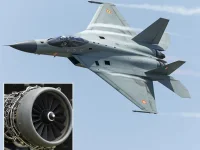
In a significant move to enhance its military prowess, India has approved the acquisition of 31 MQ-9B Predator drones from US-based General Atomics. The deal, worth an estimated $3 billion, was greenlit by the Cabinet Committee on Security (CCS) chaired by Prime Minister Narendra Modi on Wednesday.
This acquisition marks a major step in bolstering India's defence capabilities and deterring potential adversaries in the region.
The Predator drones, armed with Hellfire missiles, GBU-39B precision-guided bombs, and high-fire rotary cannons, are renowned for their long endurance, high altitude capabilities, and lethal firepower. These attributes make them ideal for a variety of missions, including surveillance, reconnaissance, and targeted strikes.
The Indian Navy spearheaded the acquisition, and will receive 16 of the 31 drones. The remaining units will be divided between the Indian Army and the Indian Air Force. Sources familiar with the matter revealed that the deal must be finalized before October 31st to avoid renegotiating the price, as per the initial contracts and US approvals.
While some of the drones will be assembled in India with 30% locally sourced components, they will not be equipped with any indigenously developed missiles. This decision stems from the prohibitive cost of integrating such missiles and the lack of performance guarantees.
Experts believe the Predator drones will be a game-changer in the region. Their advanced surveillance capabilities are expected to surpass those of the Boeing P-8I aircraft, significantly enhancing India's maritime domain awareness from the Gulf of Aden to the Sunda Straits.
The Indian Air Force and Army plan to utilize the drones for neutralizing critical infrastructure and high-value targets in critical situations. Meanwhile, the Indian Navy will deploy them to monitor illicit maritime activities and combat arms and drug smuggling in the Indo-Pacific. The drones are also expected to deter Chinese spy ships that frequently operate in the Indian Ocean.
This acquisition comes at a time when India faces growing security challenges in its neighborhood. Sources suggest that delays in India's indigenous drone development program and the increasing proliferation of advanced Chinese drones in the region, including Pakistan, may have influenced the decision to opt for the US-made Predators.
It is crucial to note that the deal must be signed before October 31st to avoid renegotiation of the price, as stipulated in the initial contracts and US approvals. This deadline adds a sense of urgency to the finalization of the agreement.




